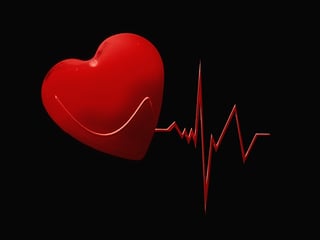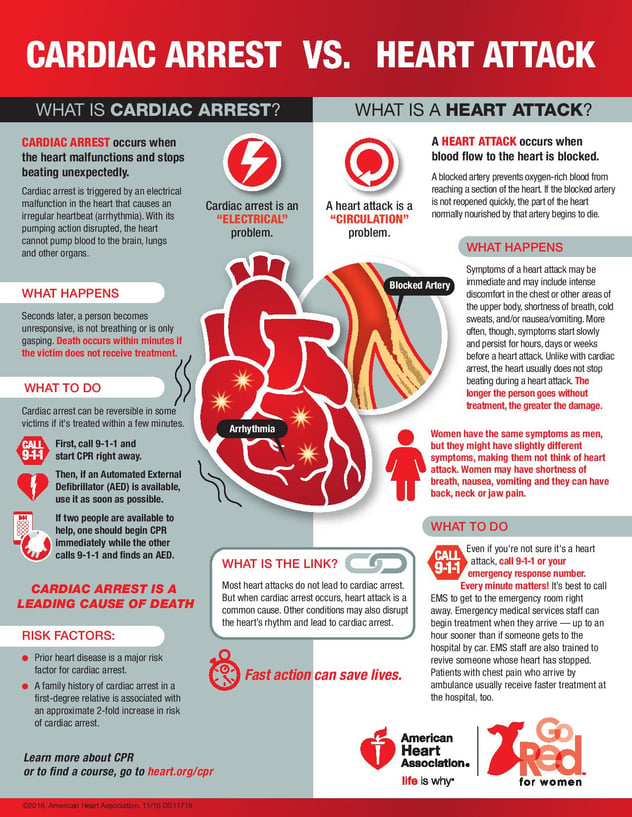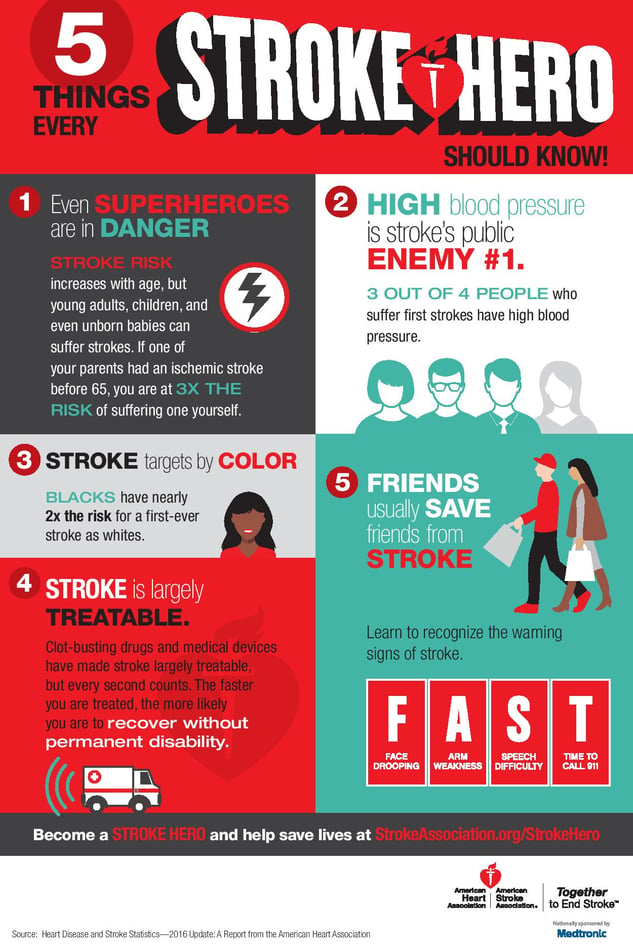 1 in 3 deaths in the U.S. result from heart disease or stroke, amounting to about 2,200 deaths each day. One American dies of stroke approximately every four minutes. Since 1964, February has been recognized as American Heart Month in an effort to increase awareness of cardiovascular disease and reduce its death toll. You can do your part by understanding your risks and taking action to mitigate them with healthy habits and preventive care.
1 in 3 deaths in the U.S. result from heart disease or stroke, amounting to about 2,200 deaths each day. One American dies of stroke approximately every four minutes. Since 1964, February has been recognized as American Heart Month in an effort to increase awareness of cardiovascular disease and reduce its death toll. You can do your part by understanding your risks and taking action to mitigate them with healthy habits and preventive care.
Understand your risks.
There are several different factors that can put you at risk for cardiovascular disease, some more within your control than others. If you have risk factors that you can’t control, you have even more reason to make every effort to control those that you can.
- Family history of early heart disease
- Diabetes
- History of preeclampsia during pregnancy
- Having gone through menopause (especially early menopause)
- High blood pressure
- High cholesterol
- Overweight or obesity
- Physical inactivity
- Unhealthy dietary habits
- Smoking
Those who are at higher risk for developing coronary artery disease may benefit from cardiac calcium scoring. This procedure begins with a CT scan of the heart taken to assess the extent of calcium buildup in coronary arteries. This information then is used to assign each patient a cardiac calcium score, which corresponds to a heart attack risk level, from very low to high. With a more concrete understanding of their personal heart attack risk, many patients find greater inspiration to take appropriate steps to bring it under better control.
Practice healthy habits.
There is plenty you can do to lower your risk of cardiovascular disease! The Centers for Disease Control and other health organizations recommend “knowing your ABCS”:
- Ask your health care provider whether taking aspirin would benefit you.
- Know your blood pressure, and if appropriate, take steps to reduce it.
- Know your cholesterol level and take steps to keep it under control.
- Avoid smoking.
In addition to these basic recommendations, the American Heart Association provides more detailed tips for reducing your risk, including
- Get regular exercise. Aim for 150 minutes of moderate or 75 minutes of vigorous exercise (or a combination of the two) each week. If you’re specifically trying to lower your blood pressure or cholesterol, try to get at least 40 minutes of moderate to vigorous aerobic exercise 3—4 times per week.
- Eat a variety of nutritious foods, including vegetables, whole grains, low-fat dairy, and lower-calorie sources of protein like nuts, legumes, skinless poultry, and fish.
- Limit sugar, sodium, trans fat, saturated fat, and red meat. If you do eat red meat, choose leaner cuts.
- If you drink alcohol, do so in moderation. Current recommendations limit women to one drink per day and men to two.
- Pay attention to food portion sizes, especially when eating out.
Know what to do in an emergency.
Heart attack, cardiac arrest, and stroke are all potential consequences of cardiovascular disease. One way you can help to reduce deaths from these events is to know how to recognize them and respond appropriately.
Cardiac Arrest
Cardiac arrest is an electrical malfunction in the heart that causes it to suddenly stop working properly. The victim soon becomes unresponsive and breathes only in gasps or not at all. In the event of cardiac arrest, it’s critical that CPR or defibrillation be administered within the first few minutes. Call 9-1-1 immediately, and begin CPR (they can walk you through it if necessary). If an Automated External Defibrillator is available, use it as soon as possible.
Heart Attack
A heart attack is caused by blockage of blood flow to the heart. Symptoms can vary and come on much more gradually than those of cardiac arrest, sometimes days or even weeks before heart attack occurs. Common symptoms are often confused with other ailments and include chest discomfort, shortness of breath, cold sweats, nausea, and back, neck, or jaw pain. Women may experience symptoms differently than men. Read this article for specific information on heart attacks in women.
Stroke
Stroke occurs when the brain’s blood supply is interrupted as a result of a blocked artery or (less frequently) hemorrhage. While stroke risk increases with age, it can strike at any age, including during childhood. Because prompt treatment is critical to full recovery, it’s important to be able to quickly recognize and respond to symptoms. The American Heart Association uses the acronym FAST to help people remember the warning signs of stroke and what to do:
- Face drooping
- Arm weakness
- Speech difficulty
- Time to call 9-1-1

Iowa Radiology offers CT cardiac calcium scoring at our Clive and downtown Des Moines clinics. Click here to contact us with questions or to schedule an appointment!
We strive to be a valuable resource for health information and provide the very best in patient care. Learn more about our clinics and services here, or subscribe to our blog.
The information contained in the Iowa Radiology website is presented as public service information only. It is not intended to be nor is it a substitute for professional medical advice. You should always seek the advice of your physician or other qualified healthcare provider if you think you may have a medical problem before starting any new treatment, or if you have any questions regarding your medical condition. Iowa Radiology occasionally supplies links to other web sites as a service to its readers and is not in any way responsible for information provided by other organizations.
Infographics courtesy of the American Heart Association http://honor.americanheart.org/site/PageServer?pagename=WRD_Resources

